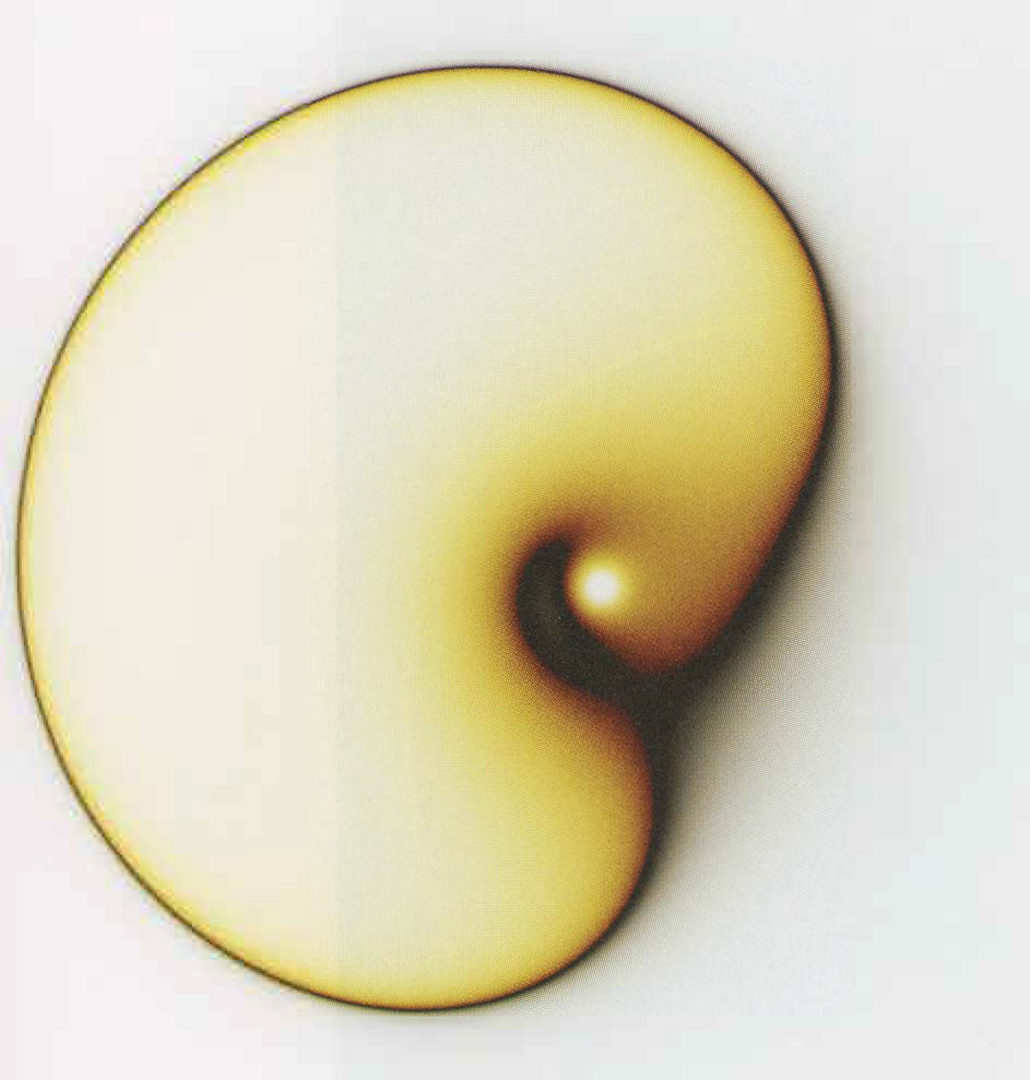David Hart: Blot 2005/01/02/10
Artist(s):
Title:
- Blot 2005/01/02/10
Exhibition:
Medium:
- Giclée on archival paper
Size:
- 30" x 30"
Category:
Artist Statement:
My artwork explores the aesthetic possibilities of pure mathematical equations. I am specifically seeking out forms that are organic enough to challenge any viewer’s notions of what mathematics can visually represent. The vehicle for this exploration is interactive artificial evolution, a computational analogy to natural selection, which allows an artist to literally grow complex and beautiful images using equations as DNA.
The software used to create these works was written by myself, and has itself been slowly evolving for over 10 years. In some ways, I consider the software part of the art itself. Balancing the combination between simplicity of use and complete controlability is one of my goals, as well as the ability for the evolution process to give the artist an instinctive and purely visual sense of the underlying equations without the need to understand them deeply at the mathematical level; to know what they do without knowing what they are. I share some of this instinct with the viewer through the simple coloring scheme I use, which is typically composed of four colors: black, white, a reddish warm tone, and a bluish cool tone. Black represents zero, white infinity, warm represents positive values and cool negative. Knowing only how the equations produce color gives the viewer an immediate visual sense of the mathematical structure of these images.
Technical Information:
These works are plots of mathematical equations that were evolved artificially through an artist-driven mutation, reproduction, and selection process. Initially, very simple equations are mutated randomly to produce a population of new equations. The artist selectively chooses the most interesting or aesthetic images out of this population, and the chosen ones are cross-bred and randomly mutated to produce the next generation. This process often repeats for hundreds of generations before artistically viable images are achieved.





